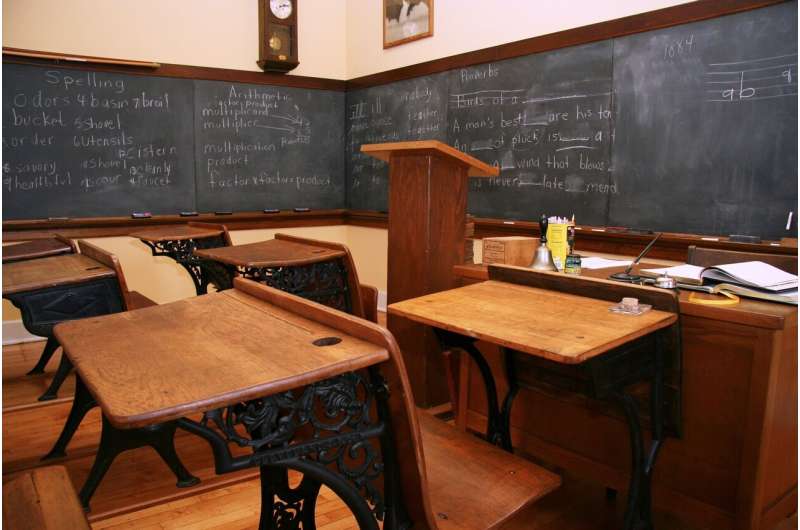Early disinterest in school snowballs into academic, social problems

The first years of school are pivotal because academic habits are unformed and peer relationships are fluid. A national assessment has shown troubling setbacks in both math and reading. A Florida Atlantic University study last year suggests that students who are not interested in academics when they begin school, struggle to find their footing, academically and socially.
In collaboration with the University of Jyvāskylä in Finland, the study was the first to longitudinally examine the effects of school interest and academic achievement on peer relationships across the first years of elementary school. Their findings show that starting off on the wrong foot academically, particularly with math and reading, snowballs into problems with peers.
"Children with behavioral and emotional problems struggle with the transition into elementary school; they do poorly in classes and relationships with their peers suffer as well," said Brett Laursen, Ph.D., senior author and a professor of psychology in FAU's Charles E. Schmidt College of Science. "We suspected that another path to early peer difficulties runs through the well-established link between disinterest in school and subsequent difficulties with math and reading."
Results of the study, published in the European Journal of Developmental Psychology, showed that a lack of interest in school and low academic task motivation resulted in a downward spiral of troubles, from poor study habits to academic difficulties to declining peer acceptance. Specifically, avoiding classroom assignments and tasks in first grade led to declining math and reading achievement one year later in second grade, which in turn, led to decreases in peer acceptance the following year in third grade. The same longitudinal pathway unfolded across the second to fourth grades.
The findings held even after controlling for factors known to contribute to school and peer difficulties, such as friendlessness, school readiness, and emotional and behavioral problems.
Findings suggest a cascading effect such that students with poor work habits fail to master basic academic skills, eliciting a negative or, at best, a disinterested reaction from classmates, who prefer to affiliate with students who are not struggling academically.
"The snowballing cascade is an apt metaphor for our study findings," said Laursen. "Difficulties progressively accelerate, growing in speed and size as problems accumulate. Just like a snowball expands as it rolls downhill, adjustment problems rapidly amplify as they worsen and spread. So, a seemingly harmless habit, task avoidance, grows to the point where it adversely impacts academic achievement; from there, problems spread and threaten peer relations."
For the study, researchers used four annual waves of data collected from 545 children (311 boys, 234 girls) followed from the first through the fourth grades (ages 6 to 8 at outset). Each year, teachers completed assessments of academic task avoidance and students completed standardized measures of reading and math achievement. Acceptance was assessed through peer nominations.
"Our findings have important implications for parents, teachers and school professionals who want to prevent the onset of troubled peer relations," said Laursen. "Considerable effort is currently invested in interventions for children with behavioral and emotional problems, because they are known to be at-risk for academic and interpersonal failure."
Importantly, researchers found that task avoidant behaviors also are a precursor to peer troubles, because elementary school children who are not fully engaged in their coursework struggle to master basic academic skills and are shunned by classmates as a consequence.
"These findings matter because they suggest that poor work habits, independent of psychosocial maladjustment, are an important first step on a path that leads to academic and social difficulties," said Laursen.
More information: Brett Laursen et al, Off on the wrong foot: Task avoidance at the outset of primary school anticipates academic difficulties and declining peer acceptance, European Journal of Developmental Psychology (2021). DOI: 10.1080/17405629.2021.1936491
Provided by Florida Atlantic University





















